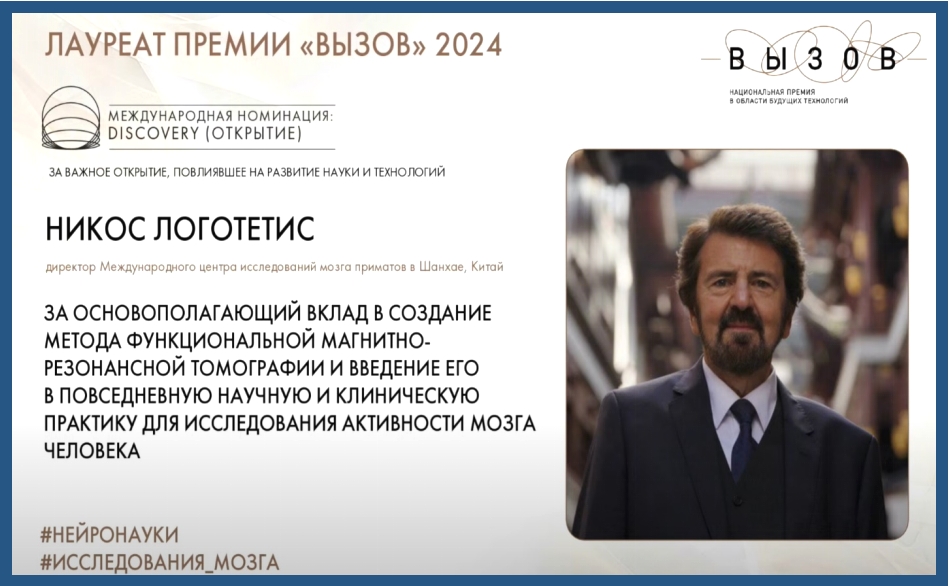Time:2024-12-20
Recently, Prof. Nikos Logothetis, the Director of the International Center for Primate Brain Research, Center for Excellence in Brain Science and Intelligence Technology, Chinese Academy of Sciences, was awarded the highest Russian Vyzov Prize for Future Technologies. The Vyzov Prize is designed to motivate and inspire distinguished scientists and technologists by honoring those, whose work has made notable strides in their research field. Prof. Nikos Logothetis was the first non Russian nationals recipient of this award.

Since 2022, Prof. Logothetis is the director of the International Center for Primate Brain Research, where he continuous enthusiastically his research in systems neuroscience. The research of Prof. Logothetis has been considered indeed to be a "unique international resource" including both novel investigations of the neurophysiological underpinnings of generative perception, as well as development of multidisciplinary methods for the studies of brain systems.
Striking for systems neuroscience has been his combination of electrophysiology with fMRI, which - among others - allowed the very first insights into the nature of the Blood-Oxygen-Level-Dependent (BOLD) signal, i.e. regional changes in cerebral blood flow (CBF), cerebral blood volume (CBV) and blood oxygenation, all three reflecting local fluctuations of neural activity. Recently, Prof. Logothetis developed and employed also a novel methodology dubbed as NET-fMRI, i.e. Neural-Event-Triggered fMRI, which permits the study of the relationship of global multi-structure-activity patterns to local intrinsic events, such as hippocampal ripples, spindles, and PGO waves, all related to various types of learning, decision-making and memory. The aim has been to study and understand the mechanisms of Synaptic and System memory consolidation.
Prof. Logothetis’ research produced over 500 publications, cited over 75000 times, with a h-index 124 and i10-index 371. Most importantly, his research in the Max Planck Institute for Biological Cybernetics produced over 60 alumni, who currently have professor positions in different continents.
 附件下载:
附件下载: